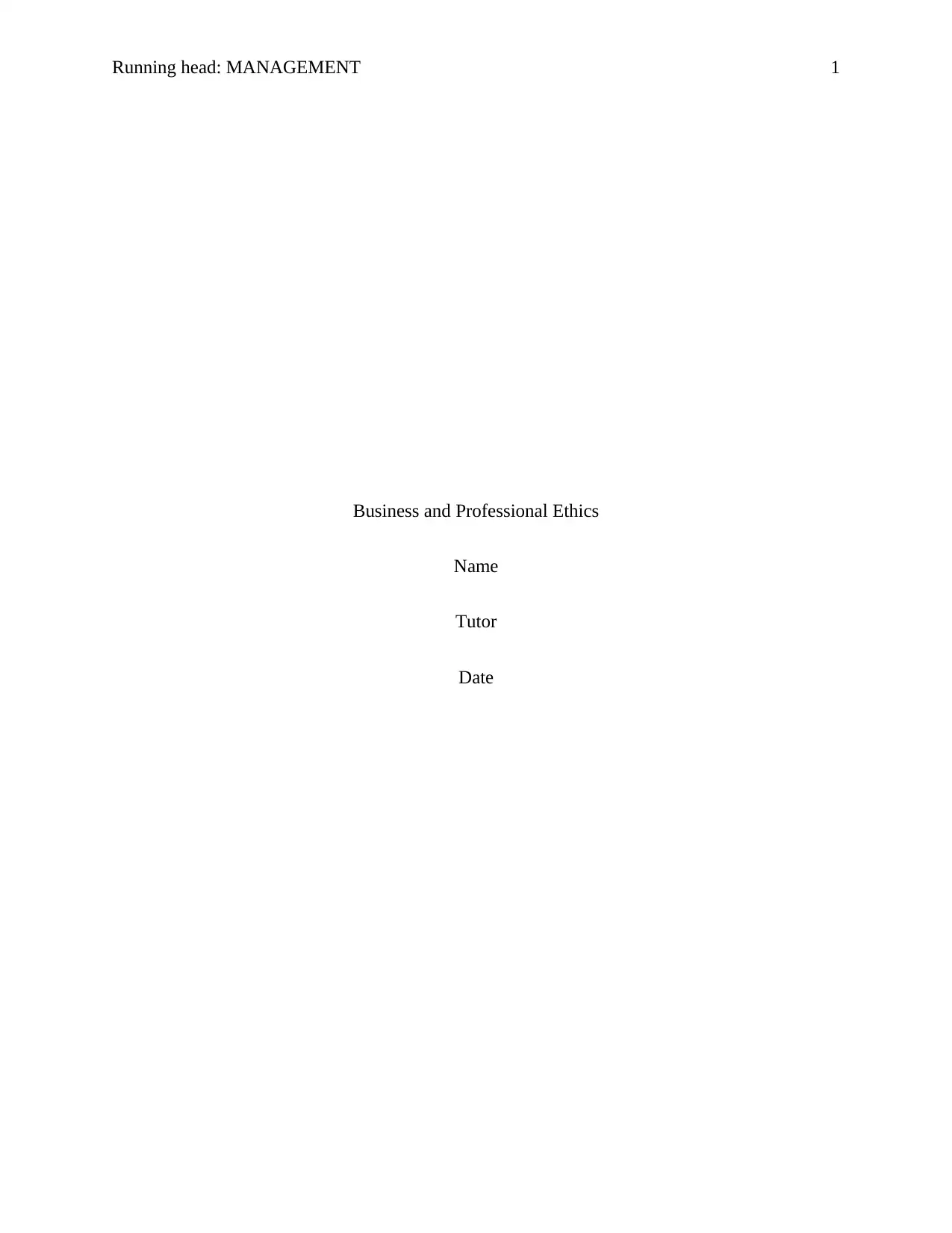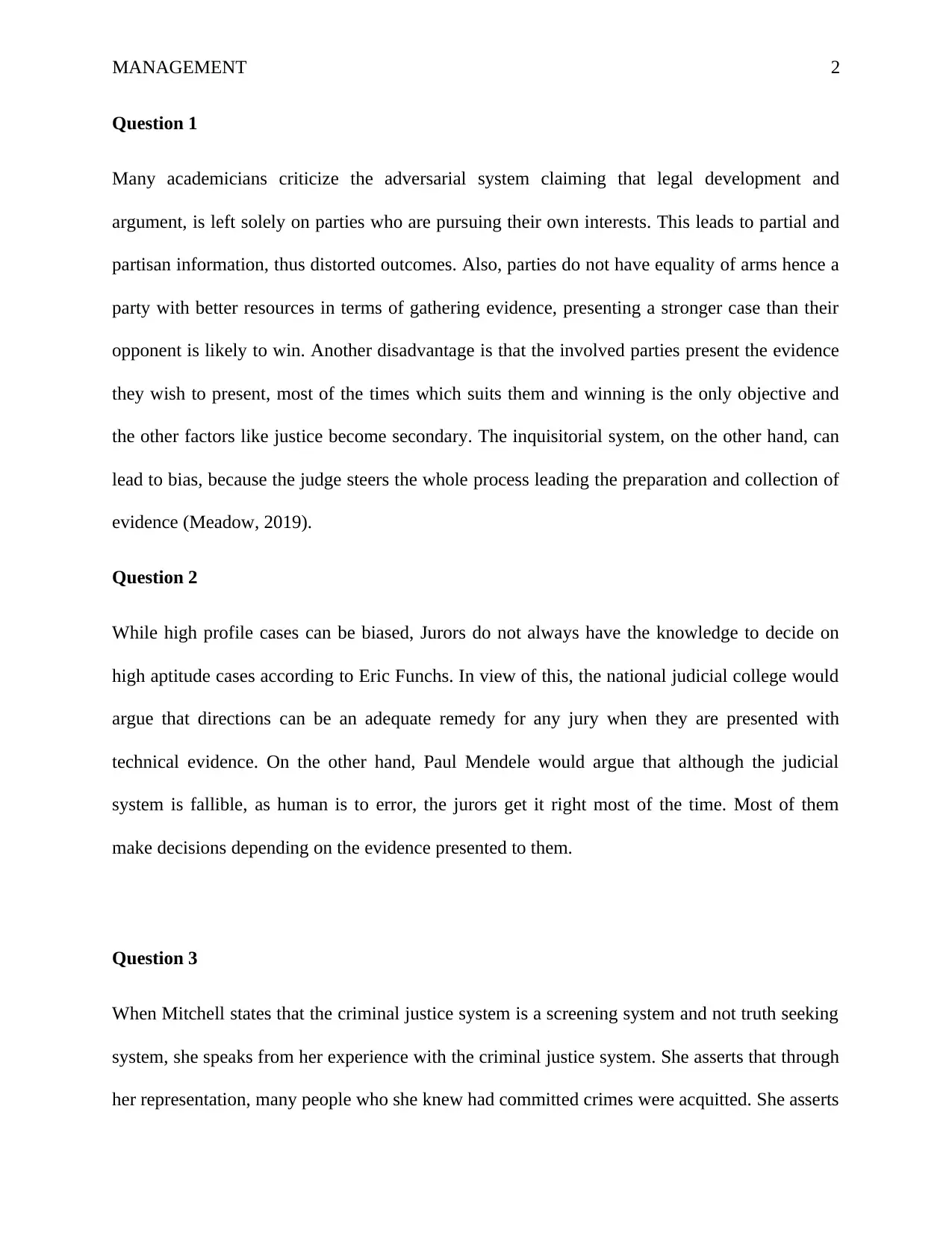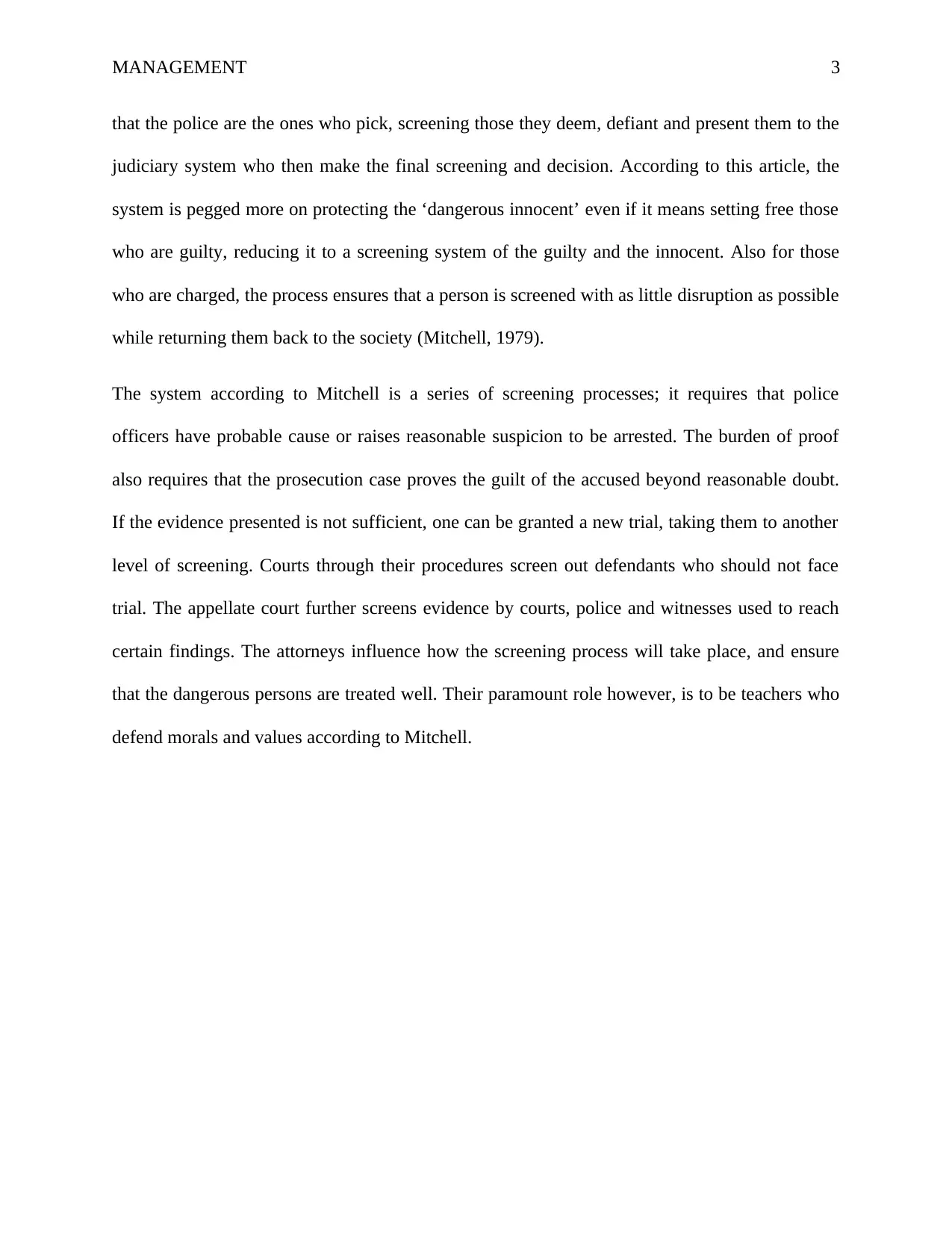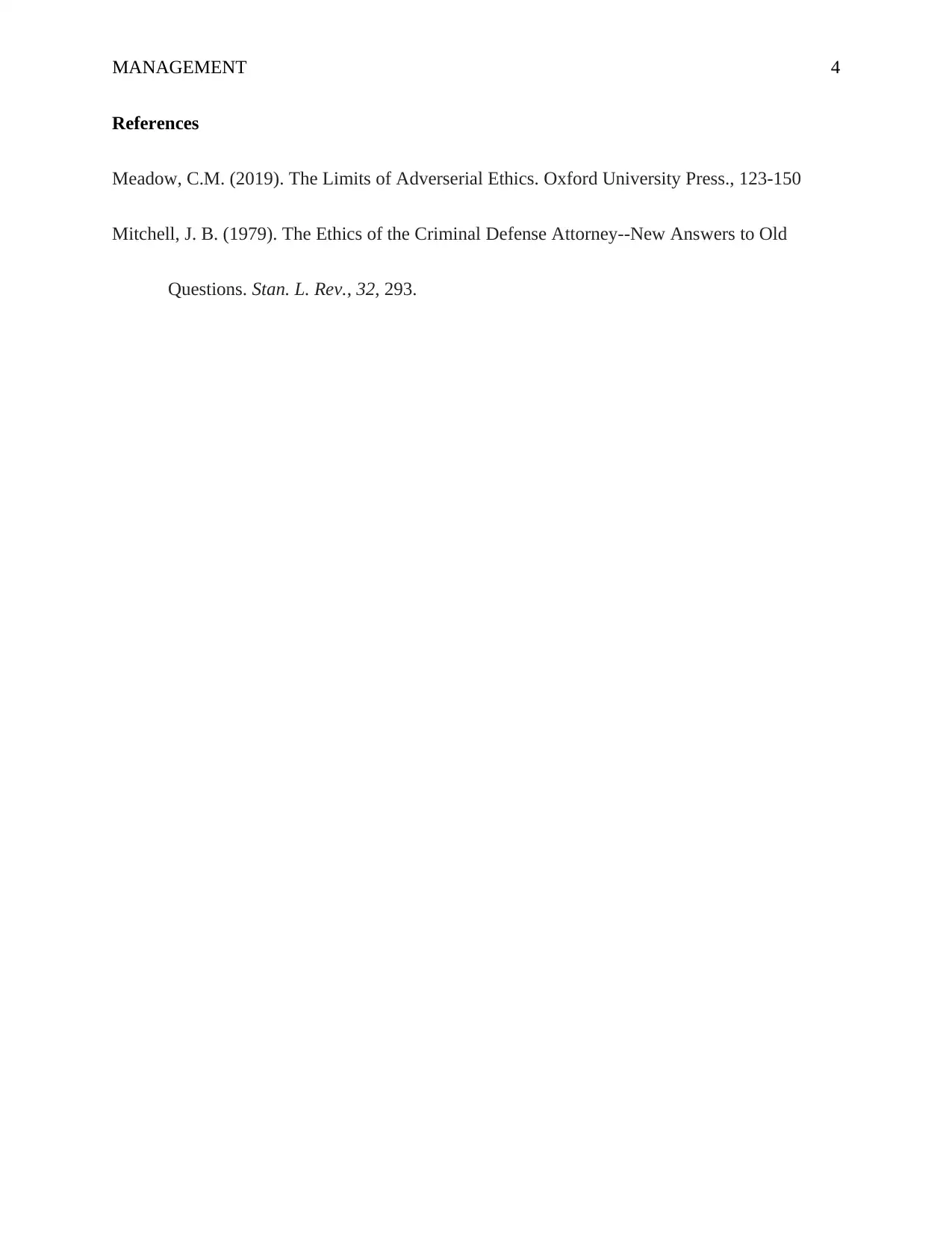University of ABC: Business and Professional Ethics Report, Semester 1
VerifiedAdded on 2023/02/01
|4
|617
|78
Report
AI Summary
This report delves into the realm of business and professional ethics, examining the adversarial and inquisitorial systems within the legal framework. It scrutinizes the limitations of the adversarial system, highlighting the potential for biased outcomes and the influence of resource disparities. The report then analyzes the inquisitorial system, discussing its potential for bias. The discussion continues with an exploration of the criminal justice system, including the screening processes involved. It examines the viewpoints of legal scholars and explores the role of attorneys in the justice system. The report references specific articles and provides a comprehensive overview of the ethical considerations in the legal and business contexts.
1 out of 4










![[object Object]](/_next/static/media/star-bottom.7253800d.svg)